Montana's Snowmobile Clubs
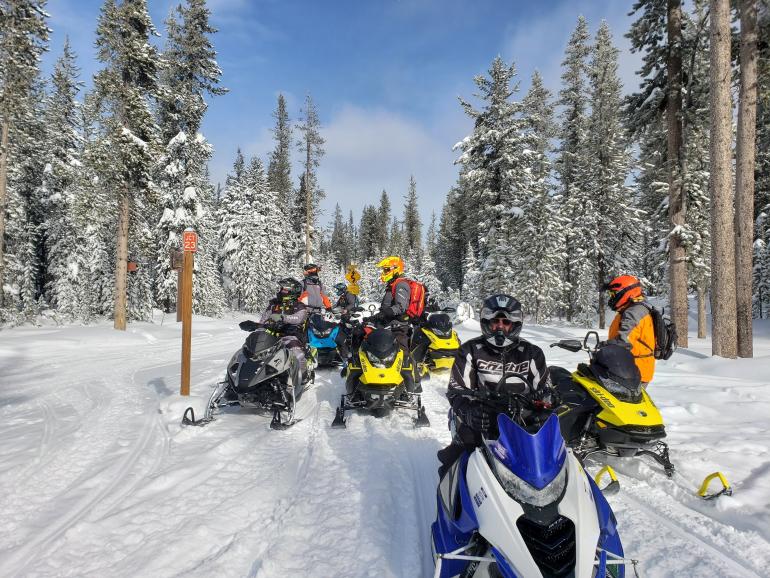
Photo by Lacey Middlestead
White clouds brush across a cornflower blue sky. The morning sun rising above the pine trees illuminates a maze of snowy trails below. Chugging steadily along one of the trails, a large orange groomer finishes breaking trail for the day. Left in its wake are tantalizing ridges of white powder. In the distance, engines rumble as a group of snowmobilers heads out for a day of riding.
With over 4,000 miles of groomed trails, Montana is a true snowmobilers' paradise. Every winter these trails deliver sledders to the sweeping mountain-meadow playgrounds, deep untouched backcountry, rugged ridgelines, and frozen alpine lakes they seek their thrills from. But it is the unseen effort behind those trails—that of a dedicated network of volunteers—that is the real lifeblood of the sport.
Montana is home to the Montana Snowmobile Association (MSA) and 26 local snowmobile clubs. Together, these non-profit, volunteer-run organizations strive to keep the sport of snowmobiling fun, safe, and thriving in Montana through their commitment to trail grooming, community, advocacy, education, and service.
When winter descends on Montana and drapes the land in white, outdoor enthusiasts flock to the trails to savor each powder-filled moment. From cross-country skiers, snowshoers, and fat-tire bikers to snow bikers, dog sledders, and snowmobilers, the trails see an incredible variety of use. What many people don't realize, however, is that it is the efforts from members of Montana's snowmobile clubs that keep the trails they love groomed and maintained.
"Many people are in the dark about it," said Daniel Kristensen, president of the Gallatin Valley Snowmobile Association.
Kristensen went on to admit that when non-motorized users of the trails learn that snowmobilers are the ones who maintain them, there are often mixed responses. Regardless, the club members only really care about ensuring everyone who wants to use the trails can.
"We just pride ourselves on getting along with everyone else," said Jon Seaman, the grooming representative for the Great Falls Snowmobile Club. "We groom to maintain the safest possible trails for everyone who wants to use them."
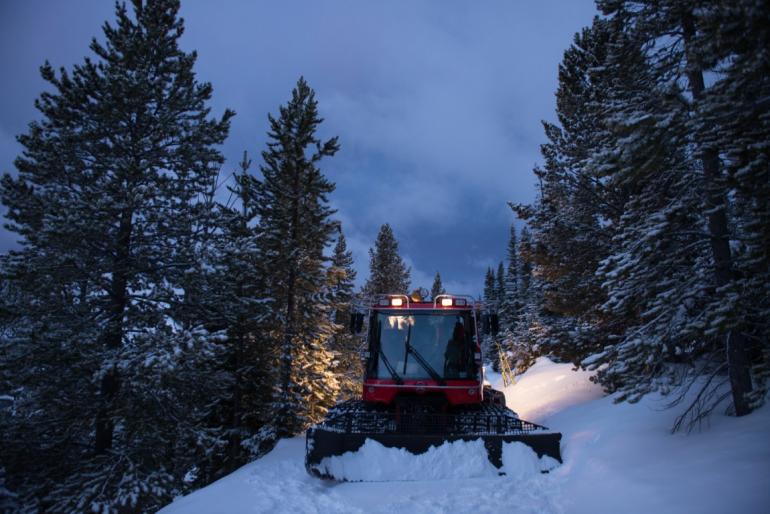
Photo by Lacey Middlestead
While many of the groomers are paid for their work, it doesn't minimize their efforts. Grooming is often an isolating job; groomers head out to the trails several times each week, often grooming in the cold and dark of night to ensure the trails are ready for weekend riders.
"Without grooming, trails would be very rough and unsafe; therefore, it's in our nature to look out for the greater community," said Mark Smolen, membership manager of the Flathead Snowmobile Association.
Funding for the trail grooming operation comes from the Montana Snowmobile Program, which is administered by Montana State Parks. The program's funding sources include snowmobile registration fees, gasoline taxes, dealer registration fees, the groomed trail pass, and nonresident permit fees. But even with available grant funds, club members volunteer their time and resources to keep the trails pristine. That participation involves year-round efforts, including clearing deadfall and debris in the spring and summer.
"There is a lot of coordination involved—it doesn't happen on its own," said Forest Mercill, president of the Lincoln Ponderosa Snow Warriors.
When club members aren't rallying together to prepare trails for winter riding, they are building community among fellow riders and promoting the fun, family-friendly nature of the sport.
"Snowmobiling is a very social sport," said Fred Bailey, current MSA president.
Throughout the year, each club hosts its own events and rides to encourage riders and families to get out and enjoy the snow and each other's company.
Each year on Superbowl Sunday, the Helena Snowdrifters host a "Women on Snow" event that gets ladies out for a day of fun before watching the game. The Great Falls Snowmobile Club has held outdoor movie nights in Moose Park where family films like Elf have been screened. In Lincoln, the Ponderosa Snow Warriors host an annual fun run and pancake breakfast at their warming house featuring renowned sourdough pancakes prepared by Snow Warriors member Bob Orr. And the list of activities goes on.
"We are fostering a love of the sport—a lifelong activity that generates a ton of good friends," said Kristensen.

Photo by Lacey Middlestead
Montana's snowmobile clubs aren't just a community of winter recreation enthusiasts, though. They also serve as a passionate and unified voice that advocates for the sport of snowmobiling and educates on riding safely and responsibly.
Bailey explained that the MSA is essentially the legislative voice for the clubs. The MSA maintains a lobbyist who advocates at the state and federal levels for maintaining access to public lands and riding areas. Within individual clubs, members are kept apprised of any motions being made to shut down riding access so that they can voice their opinions.
"Individual comments are just as important as a collective representative speaking," said Bailey. "We need voices heard; we need people to respond."
In addition to advocating, the clubs take the education of all riders very seriously. From informing new riders about where they can legally ride to holding riding clinics for kids, the Forest Service and Search & Rescue, the clubs do their part to teach proper riding techniques and how to ride responsibly and respectfully. Many clubs host avalanche trainings to ensure riders also know how to react quickly and appropriately in an emergency.
"We want riders to be confident and assured that they can take their equipment out and use it confidently to come to someone's aid," said Victor Johnson, treasurer for the Ponderosa Snow Warriors.
Johnson also shared that the Ponderosa Snow Warriors will soon join the Seeley Lake Driftriders in installing beacon check stations to notify riders passing by whether their avalanche beacons are transmitting.

Photo by Lacey Middlestead
For the clubs, advocating for sledders' access to riding areas is critical, but always goes hand in hand with education on the safe, courteous, lawful, and responsible use of snowmobiles on that land.
When Montana's snowmobile clubs aren't busy promoting and protecting their sport, they dedicate themselves to the service of their greater community. "We do our part to help with the community in every way we can," said Bailey.
Each year the MSA sponsors the Trans-Montana Charity Ride (TMR), which many of the state clubs participate in. The week-long ride visits six different riding areas in Montana and raises awareness and money for a charity of its choosing. For the past four years, the TMR has supported the Montana chapter of the National Alliance on Mental Illness (NAMI).
"When we heard from NAMI about the suicide levels for teens and veterans in our state, we thought this would be an excellent area for us to focus our efforts," said Smolen, who serves as chairman for the TMR. "Both causes resonate with our members as these issues seem to touch nearly everyone either directly or indirectly via friends and neighbors."
According to Smolen, the TMR raised $18,000 for NAMI Montana in 2021.
While the TMR is the largest charitable event supported by Montana's snowmobile clubs, individual clubs give back to their own communities as well.
Seaman shared that the Great Falls club typically holds a Toys for Tots toy drive to benefit local kids during the holiday season. They also support the local food bank.
According to Bailey, the Helena Snowdrifters and Lincoln Ponderosa Snow Warriors are two clubs out of several that actively participate in noxious weed spraying and highway cleanup programs in the off season.
"We use the outdoors and highways, so it's our way to be responsible and keep these resources in good shape," said Bailey.
From additional charity and scholarship rides throughout the season and participation in other local fundraisers, the clubs actively commit themselves to giving back.
With some of Montana's snowmobile clubs having been around for decades, the impact of their efforts in trail grooming, community building, advocacy and education, and community service are significant and far-reaching. As the clubs gear up for the upcoming riding season, the need for the work they do is greater than ever, as is the need for new members to carry on their legacy.
"We need the next generation to step up today, join their local club, help out, learn the ropes, and in general, just get involved," said Smolen. "Joining and paying dues is nice, but it's simply not enough."
So when you head out to the trails for a day of winter recreating this year and delight in that first slice of your ski, tire, or shoe into the powder on the freshly groomed trails, consider thanking your local snowmobile club for their efforts.
"By doing the work we do, we are able to introduce others to our passion and show them just how special our state is in the winter," said Smolen.
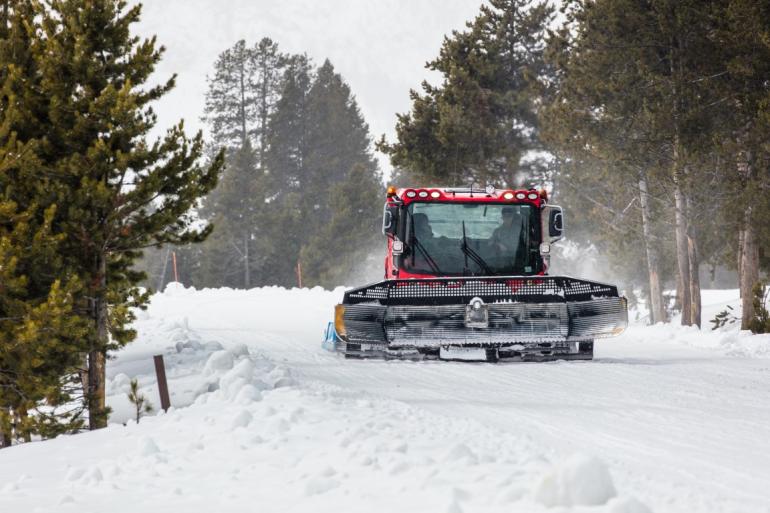
Photo by Lacey Middlestead





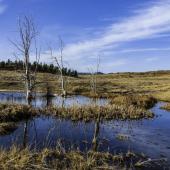
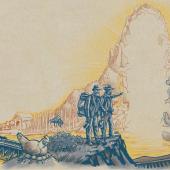

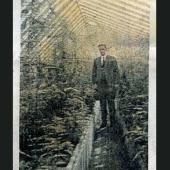

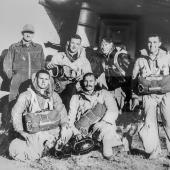

- Reply
Permalink